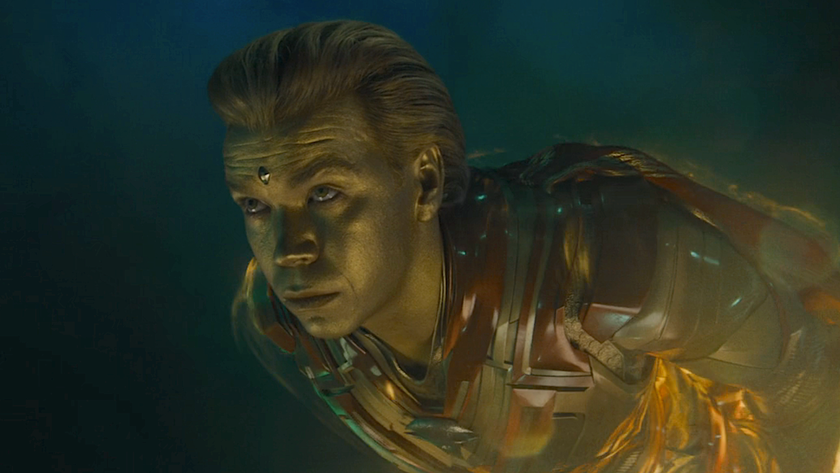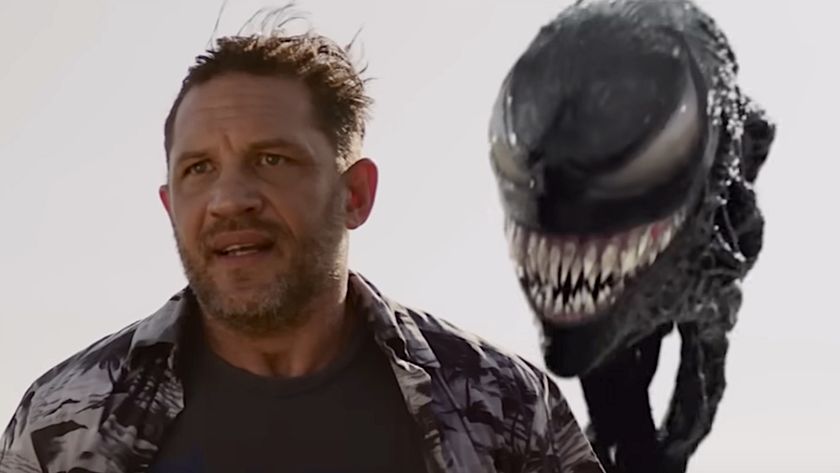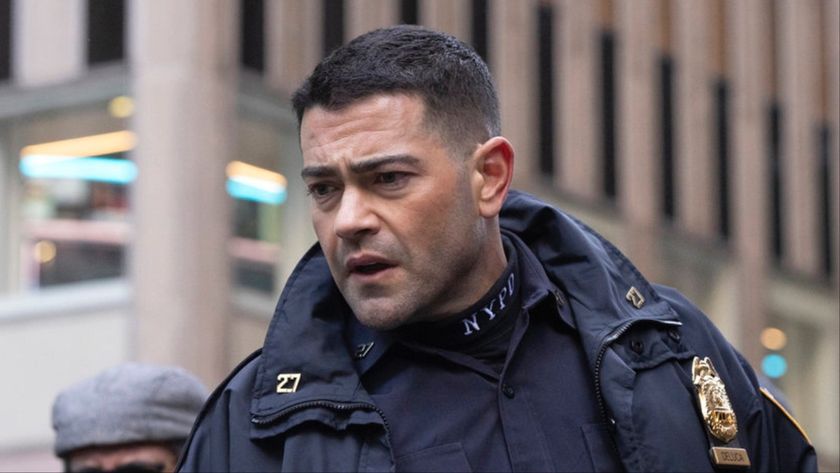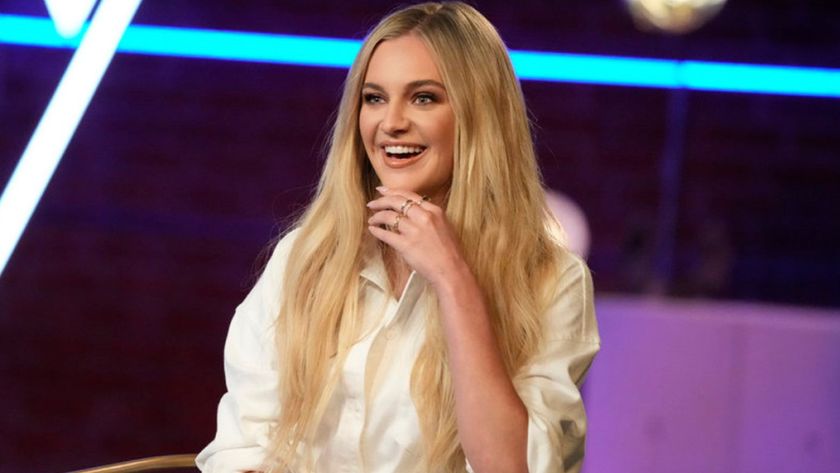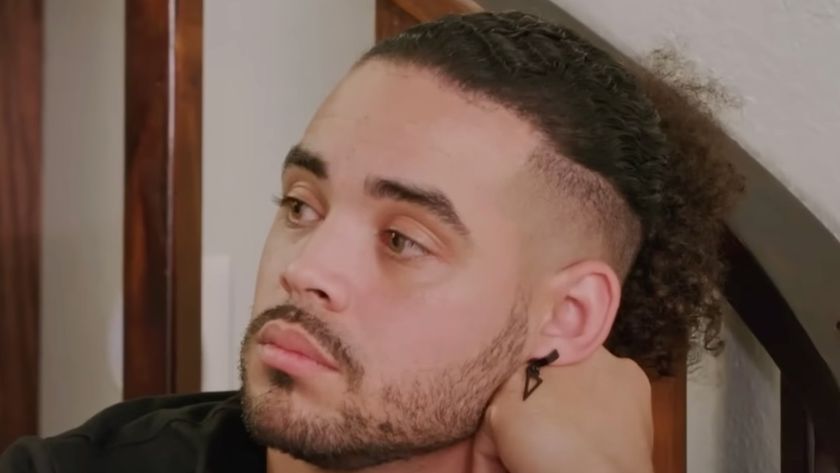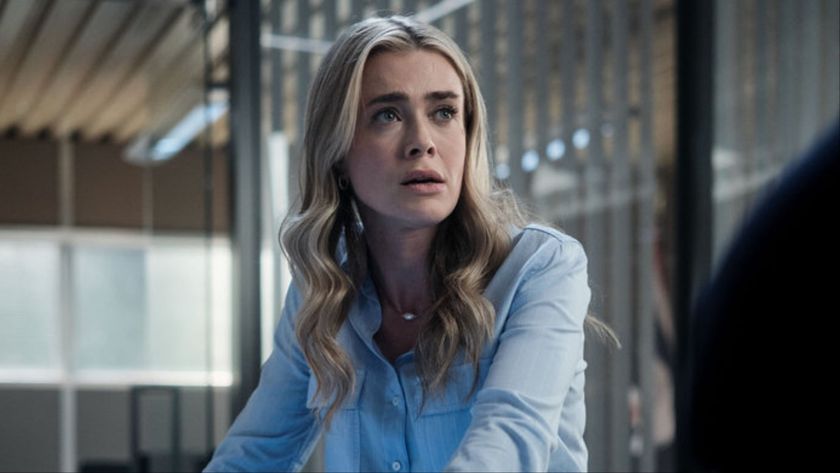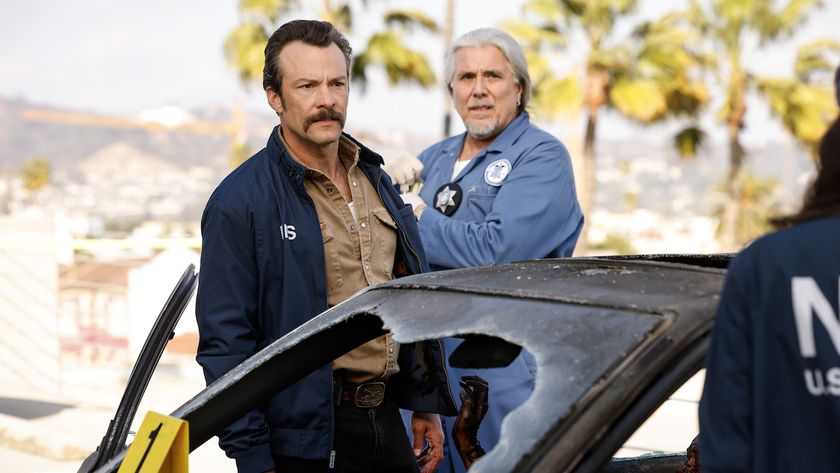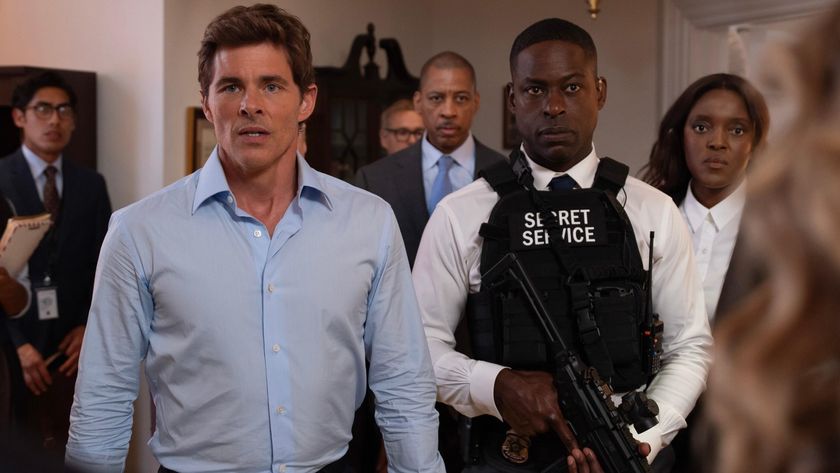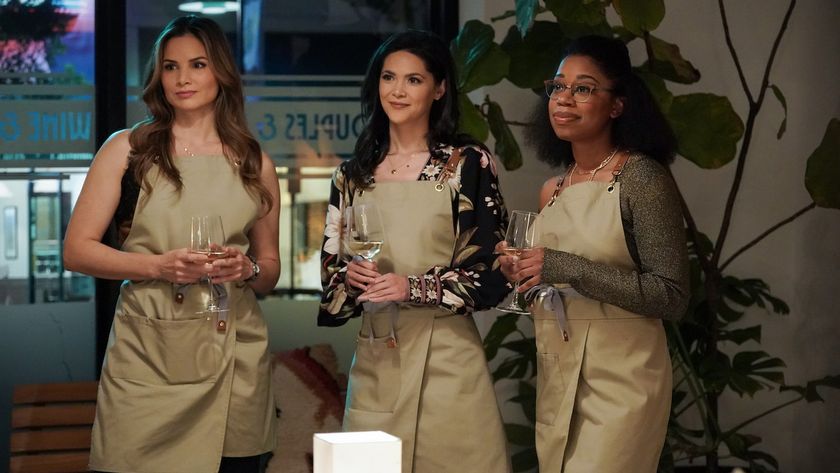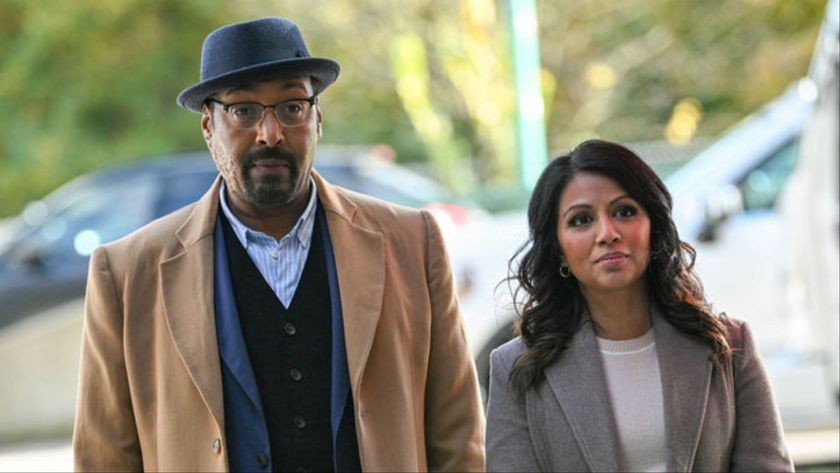
The last decade featured a number of outstanding drama series, so it wasn’t easy for us to pick our favorites. We did manage to narrow the list down to the dramatic series that topped the others, in our book anyway. So thanks to shows featuring serial killers, space cowboys, cylons, mobsters, tough cops and other fantastic characters, it’s been a great ten years of TV.
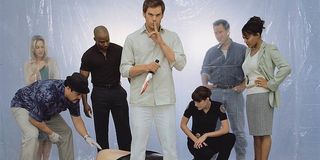
Dexter (Showtime)
Dexter is a series that embraces moral ambiguity. As opposed to a show that gives us a villain we love to hate, Dexter is a villain we can’t help but love, despite the fact that he’s a serial killer. Through Dexter’s inner monologue, we’re given an inside look into the mind of a serial killer who, through the code of ethics bestowed upon him by his adoptive father, chooses only to victimize murderers. Dexter’s character could be seen as a manifestation of anyone’s secret desire to see violent murderers get a taste of what they’ve dished out. That said, what makes the show so enjoyable isn’t just the parts where Dexter creepily explains to his victims why they’re covered in plastic wrap and about to receive a knife to the chest. It’s more the story of the character’s attempt to live a “normal” life, working as a blood analyst for the local police department and interacting with his girlfriend, sister and coworkers as though he were any other average joe. Dexter lives a double life and we, the viewers are in on the secret, which is part of what makes this series compelling and oftentimes, utterly addicting.

House (Fox)
House decided to do something different with the medical drama from the outset: be interesting and controversial. American audiences met British comedic actor Hugh Laurie as the vicodin poppin’, sarcasm slinging, rude and arrogant titular character. When we saw this doctor call bullshit on his patients, pit colleagues and subordinates against one another, and continually sabotage his own chances of happiness with the girl he loves we felt awed by his brazen attitude and heartbroken at his fragile state. House let us root for the asshole, because we knew he would be right. Fox’s hit drama also had the intelligence to maintain the formula that made it an early success, even when the core original team was phased out for a season in an effort to bring fresh faces aboard. Despite the return of the original team, plus a few leftover faces from the interim period, House never wavered in what type of show it was. How many of our favorite TV series’ lose their way because the creators think we need drastic changes each season? Even after extensive rehab, and being off of vicodin, Dr. Gregory House is still a sarcasm slinging, rude and arrogant son of a bitch.
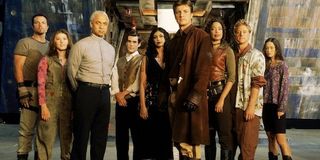
Firefly (Fox)
Firefly is not only Joss Whedon’s greatest achievement in character development and storytelling, it also gave us what may be arguably the best episode of television this decade. “Out of Gas” was the eighth episode in the short lived series, and it had the distinction of being the viewer’s window into how the Serenity crew came together. Powerfully composed with three storylines: the present; near past that led to the catastrophe on Serenity that then lead to the present; and the distant past showing how Mal and Zoe gathered together their band of space pirates. Typical Whedon humor permeates the episode as we see that Zoe wasn’t really sure of the mustachioed Wash when she met him, meanwhile in present time they’re madly in love. Kaylee was a mechanic groupie, having sex with the supposed “genius mechanic” Mal had hired. But when that man couldn’t fix a simple problem, Kaylee did it for him and was offered a permanent position. Jayne shoots his partner and holds another at gunpoint to negotiate for the job on Serenity Mal has offered. It’s a breathtaking hour of television and proves that when you have great characters to feed off from you can then formulate a story that is moving and memorable. For a general take on the greatness of Firefly check out Blend Television’s Gone Too Soon list.
CINEMABLEND NEWSLETTER
Your Daily Blend of Entertainment News

Breaking Bad (AMC)
Almost all TV series over the past sixty years afford themselves a couple of fluff episodes annually; shows that aren't necessary to the canon of the series and are usually there to save money. This is not a philosophy put into practice by Vince Gilligan's Breaking Bad on AMC. Every episode is almost un-ending in its masterful use of dread and teaser foreshadowing in gluing viewers rigidly to their seats. The show is only two years old but, from the opening moments of its pilot, has orchestrated this emotionally unbalanced story with such a maturity that it can't help paling other dramas by comparison. The chameleon Bryan Cranston, as sub-genius cancer-ridden chem teacher Walter White, gives the performances of his career every time he's on screen. To secure his own post-mortem funding for pregnant wife Skyler and son Walter Jr., Walt uses his advanced knowledge to create an almost pure strain of crystal meth, and recruits former student/current meth-head Jesse Pinkman to manufacture and sell it with him. That's how things started, at least. By the end of the short first season, Walt already finds himself at the mercy of a rival drug dealer whose own sub-standard product is losing demand. And from there, things only get more dangerous and nail-gnawingly tense. Things get larger than life at season two's end, but feel confident that these hyper-talented storytellers will tighten the reins once season three is unleashed. Bryan Cranston should never have a full head of hair again.
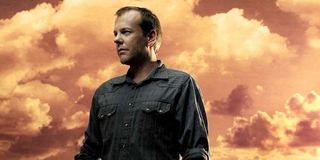
24 (Fox)
At the end of the upcoming eighth season of 24, the series will supplant both Mission: Impossible and The Avengers as the longest running espionage in television history. And it did so by bringing its innovative “real time” framing strategy to bear. Another innovation for the show was the use of split-screen to showcase events happening simultaneously with different characters or in different places. Prior to 24, this technique was rarely used in scripted television. They even gave us a black president before Obama, and our first female president. But most importantly, the show brought us Jack Bauer. Keifer Sutherland has crafted a bad-ass character of already-legendary stature. Some seasons have been stronger than others, with the fifth season dealing with the corrupt President Logan still standing as the high-water mark for the series.
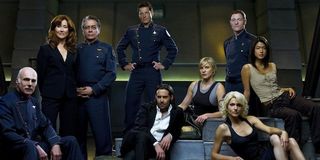
Battlestar Galactica (Scifi)
Battlestar Galactica thrived off three things; great special effects, excellent writing and a remarkable cast of characters. The series, which started out as mankind’s attempt to save what was left of their race after a band of humanoid robots called “Cylons” nearly annihilated them, slowly brewed into a suspenseful tale of human nature at its best and worst. The quest for earth and hope for survival against repeated attacks from the Cylons was the initial mission, however as BSG evolved, the series turned more into a dramatic piece with a science fiction backdrop. Human nature was explored, not only through the humans who were attempting to find a better future for their race, but also through the Cylons, whose own links to mankind forced them to question their objectives and their place in the universe. The series was great, not only for sci-fi geeks but also for TV viewers willing to give the genre a chance and inevitably finding themselves fully engrossed in the story that was suspenseful, dramatic, and even humorous at times.
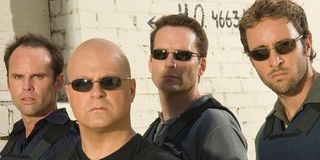
The Shield (FX)
Before The Shield, the only place on cable that you could reliably look for gritty, mature, intense dramas were on the pay channels. Suddenly, here was a morally ambiguous hero in Vic Mackey (Michael Chiklis) and his team of ne-er-do-wells. But the entire extended cast, including notable recurring roles for Glenn Close, Anthony Anderson and Forest Whitaker, is what made The Shield amazing. They were all so damned flawed and human and raw. Just imagine how sanitized it would have had to be just to air on a network station. The Shield not only put FX on the map as a force for original scripted dramas, but it helped usher in a whole new movement or original series on cable that’s starting to give the networks pause. The show was so effective in humanizing everyone, that by the time the end came I wasn’t sure if I wanted Vic to get away with everything he’d done, or finally pay the piper. I think the writers found the perfect solution, though.
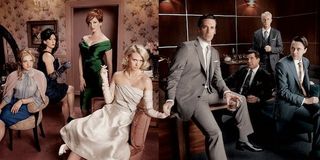
Mad Men (AMC)
Where most television series keep things moving, with snappy dialogue and action, AMC was willing to let a scene linger with Mad Men. Perhaps a shot of Don Draper (Jon Hamm) lingering over a cigarette staring out the windows at Sterling-Cooper. The production and presentation of the drama was as much a part of establishing the tone and mood as the dialogue and setting were. Mad Men took a few years to find an audience, but the awards shows took to it immediately, and Hamm’s Don Draper became the quintessential “ladies man” before anyone knew what show he was from. All the while, the writers were producing some amazing drama, slowly revealing the secrets behind Don, as well as his wife’s frustrations with her situation, and an ad agency dealing with changing technologies and culture in the 1960s. And while you wouldn’t think they could keep things twisting and turning in advertising, they’ve managed to knock us off our feet with each finale, and this third one pulled the rug out from under everyone.
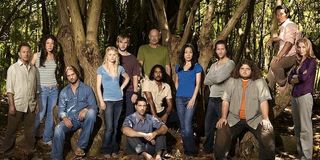
Lost (ABC)
Survivors of a plane crash, dealing with their own personal demons, learn to live together or die alone on an island shrouded in mystery. It was a gamble for J.J. Abrams, the producer of Felicity and Alias, to sell the public on the concept of Lost, but it caught on like wildfire. It's the "what's-in-the-box" plot that frustrates viewers and also keeps them coming back week after week. It's this formula along with an end date where (hopefully) most mysteries will be resolved that makes it one of the best of the decade.
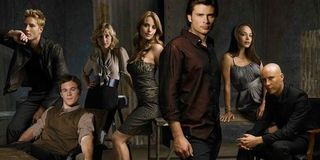
Smallville (WB/CW)
The viewing audience of Smallville, if not the world, cries out weekly "somebody save me" in a decade that started in horror and ended in hope. Superman has always been looked up to as the ideal for the best in all of us, and as our nation grows, we can look to the lessons the man that will be Superman learns every week. You laugh with him, you pine with him, you someday hope to fly with him, but most of all, you believe in him. This is one teen show that unbelievably started churning out some of its best episodes after it lost its creators and most of its writers and actors in the last few seasons. It is now an adult show that never fails to impress, even beating the Friday curse in its ninth season. Here's hoping they are able to give it the great closing tenth season it deserves.
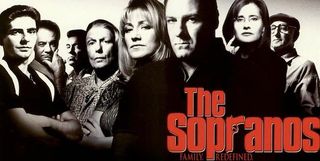
The Sopranos (HBO)
From the time we hear “Woke up this morning, got yourself a gun” and watch Tony Soprano emerge from the Holland Tunnel to take us on a mini-tour of the good-old Garden State, we have a front seat look at a world we’ve always wondered about but never really understood. We see the ghettos Tony preys on and the mansion he lives in, the comically violent and narcissistically dense members of the mafia, the prototypical anti-hero who goes to therapy (but never really gets better) and a nuclear family that could explode at any minute. And as much as the Sopranos (Tony especially) preached about family, we knew everyone was mostly just looking out for their own asses anyway (Tony especially). If the Sopranos contained moral and familial ambiguity, well, the viewers were just as conflicted as the characters. We rooted for everyone and no one at the same time. We wanted everyone to succeed but hated how the ends didn’t always justify the means. We wanted the family to stick together knowing that it could never survive. But inner turmoil aside, there is no argument on this point: The Sopranos was transcendent (dare I say, family) television from the very first scene of Tony sitting in therapy like your average neighbor to the final family dinner, fade to black at the end (with all the violence, sex, murder, and money in between).

Veronica Mars (UPN/CW)
Cult status can't always be predicted, but the signs are usually there. Critical hit with a shifting timeslot, on a fledgling network. Relatively unknown cast winningly portraying interesting characters in a vastly under-tapped genre: teen noir. Veronica Mars fits all these bills and many more. By sheer sense of setting and situation, the fairly procedural episodes of Veronica Mars, even with all the youth involved, are a primed and more sophisticated brand of drama than one might think at first glance. Kristen Bell and Enrico Colantoni, as familial yin/yang Veronica and private dick Keith Mars, are close to perfect, showing just the right amount of teeth when angry and just enough heart when necessary. The murder of Veronica's best friend Lily Kane and subsequent suspect naming, the catalysts of season one, set the stage for Veronica's detective instincts and her fringe-of-popularity existence, shunned by the wealthy, spoiled peers (the 09ers) of her past, particularly Logan Echolls, for whom some of the most ingenious put-downs ever on TV were written. A switch from high school to university, still in the Neptune, CA suburb, added more depth and characters, but studio grunts watered down some of the show's attitude before cutting it loose completely. DVD releases culled millions more fans into its addictive viewership, and online petitions for a feature film abound. Bell has gone on to add palatability to other competent projects, but nothing so far has yet held a candle to the bitchy bonfire of Veronica Mars, the most classic bit of TV to come out of UPN. It isn't saying much, but the show speaks for itself.
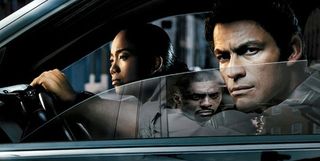
The Wire (HBO)
The Wire was great not because it left us with any cliffhangers or presumed to think we were waiting for the next big question. Instead, David Simon’s masterpiece relied more on the reality of a disturbing societal situation and did it on such a grand scope that we thought we were watching the greatest documentary of all time. From the drug dealers to the politicians. The dockworkers to the junkie users. The journalists to the schools kids. And around all of them, the P-O-L-I-C-E. The Wire ventured to make its Baltimore-based fiction so real it didn’t feel like a drama. The characters were disturbingly flawed and yet surprisingly redeeming. From the most downtrodden homeless man (Bubbles) the most evil drug kingpin (Stringer Bell) the seediest politician (Tony Carcetti) to the most drunk and promiscuous cop (McNulty) and every other unforgettable character, they each remained just humans trying to get by doing the only things they knew how. It was a commentary on our own faults without us even noticing. The Wire was great television (the greatest television?) because it never presumed to teach us something, but just showed us life’s flaws in a simple, painful, funny, heart-breaking and redemptive fashion.
Relive more of the Aughts with us by clicking here.
